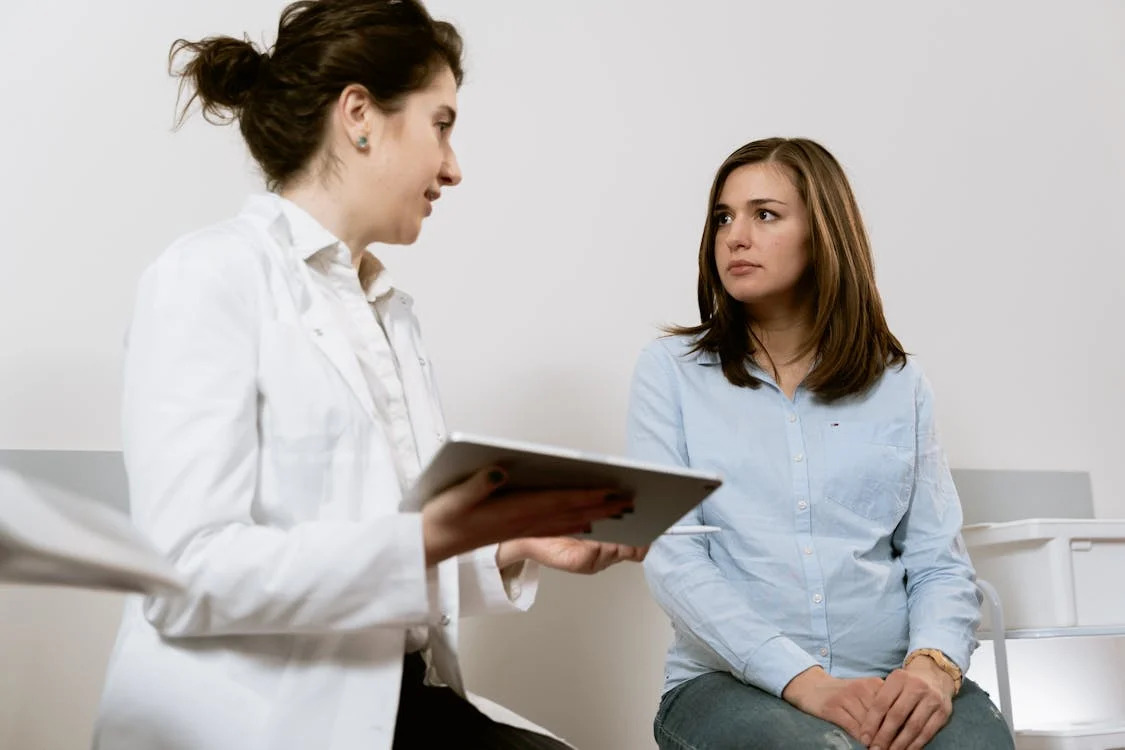What To Expect From a Visit to a Gynaecologist?
There are many reasons why a woman may see a gynaecologist, but they all correlate with acute or chronic conditions relating to the female reproductive system. Perhaps you’re experiencing abnormal menstrual bleeding, you’ve had some abnormal pap test results, you’re having difficulty falling pregnant, or you’re experiencing menopausal symptoms – these are all reasons that you may be referred to our office.
If this is the first time you’ve seen a gynaecologist, it’s understandable that you may be unsure what to expect or experiencing some trepidation. The good news is that your appointment will likely be very straightforward.
For more than 20 years, Dr Hugo Fernandes has been providing women around Melbourne with patient-centred gynaecological care. His goal is to ensure that all women have access to comprehensive care and support, no matter their health concerns or conditions. Book an appointment today and take advantage of Dr Hugo’s years of experience and training.

Medical History
During your initial appointment, your gynaecologist will get to know you a little better by taking down your complete medical and surgical history. They will ask you about any allergies, current medications, and whether there’s any relevant family history (such as ovarian cancer or fertility problems). They will also ask about your occupation and interests, as these may be relevant to your health concern and/or treatment.
Most importantly, your gynaecologist will ask the reason that you’ve come to see them. This is when you can provide a brief outline of your health concern and your symptoms, as well as answer any follow-up questions.
Questions you may be asked include:
- Do you have a regular menstrual cycle?
- What form of birth control are you using?
- When was your last pap smear?
- Are you trying to conceive?
- Have you ever been pregnant before and, if so, how many times?
- Do you experience pain and, if so, how would you describe it?
- Do you experience any abnormal bleeding or bleeding after intercourse?
- Do you experience any abnormal discharge?
- Do you experience genital pain, itching, or other discomfort?
- If you are over the age of 40, have you had a mammogram or bone density study?
Physical Examination
Depending on the reason for your visit, your gynaecologist may feel it’s necessary to perform a physical examination and/or pap smear. You’ll be given a clean gown to change into and asked to lie down on the examination table with a clean sheet to cover you.
Types of physical examination that may be performed include:
- Breast examination, which the gynaecologist will use to help identify any abnormalities (such as lumps). They will palpate your breast with their hands and may ask you to identify areas of tenderness or soreness.
- Pelvic examination, which is when the gynaecologist gently examines your genitals by hand using gloves and a lubricant gel. Try your best to relax your abdominal and vaginal muscles so that this is as comfortable as possible.
- Speculum examination, which is when a sterile metal speculum is inserted into the vagina and gently opened to provide better isolation of the cervix and cervical canal. If a pap smear is required, a small plastic spatula will be used to collect cells from the cervix. If an infection is suspected, a swab may be taken.
- Ultrasound examinations may be required to give the gynaecologist a better look at what is happening internally. This may be performed abdominally or vaginally, depending on the concern. Note that these may not be offered in-office and you may be referred elsewhere.
Discussion of Findings
At the end of your consultation, your gynaecologist will discuss their findings with you, refer you for any additional tests or investigations (such as blood tests), and let you know when you should see them again for a follow-up appointment. They will also advise when any test results should be expected and how you will receive those. They should provide some time for you to ask questions, ensuring that you understand your diagnosis and what it means.
Depending on your diagnosis, treatment options may be conservative (a watch-and-wait approach to see if the issue resolves on its own), medical (non-hormonal or hormonal medications), or surgical (minor day procedures or major surgery).
If you were referred to the gynaecologist, your referring GP will be provided with a written summary of the appointment and an explanation of the plan moving forward.
Have Peace of Mind When You Visit Dr Hugo
Your gynaecologist is someone that you should trust and feel comfortable with, as concerns regarding female reproductive health often put you in a vulnerable position. Dr Hugo and his team are committed to abiding by strict patient confidentiality standards and providing a warm and welcoming environment based on respect and honesty. Visit Dr Hugo today and have peace of mind that your health concern is in good hands.

